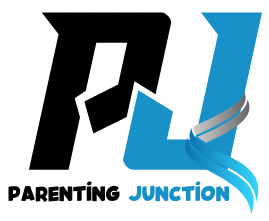Disagreements between parents and teachers can be stressful. Whether it’s about grades, behavior, teaching styles, or classroom incidents, conflicts can arise even when everyone is acting with the child’s best interests at heart.
But how you handle these situations can make all the difference. A calm, respectful approach builds trust and cooperation—and ensures your child gets the support they need.
- Pause Before You React
When you hear something upsetting from your child or see something you disagree with, your first reaction might be frustration or defensiveness. Before firing off an angry email or making a call:
- Take a deep breath
- Gather all the facts
- Consider your child’s perspective and the teacher’s
- Ask: “What do I want to achieve with this conversation?”
🎯 Your goal should be collaboration—not confrontation.
- Listen to Your Child—but Verify
Children are honest, but their interpretation of events may be emotional or incomplete. If your child reports something troubling:
“That sounds hard. Let’s talk to your teacher and find out more together.”
Avoid immediately blaming the teacher. A balanced understanding helps you respond wisely.
 Source: https://www.soundvision.com/article/steps-for-resolving-common-parent-teacher-conflicts
Source: https://www.soundvision.com/article/steps-for-resolving-common-parent-teacher-conflicts
- Approach the Teacher Respectfully
Start with a non-accusatory message or conversation, such as:
“I’d love to talk about [issue]. I want to understand more about what’s happening in class and how we can work together.”
Avoid email rants or dramatic language. Instead, express concern and curiosity—not blame.
- Choose the Right Setting
Avoid trying to resolve serious issues in quick hallway chats or over text. Request a proper meeting—virtual or in-person—so there’s time for a full conversation.
✅ Be on time
✅ Stay calm and professional
✅ Bring notes if needed
✅ Focus on solutions, not just problems
- Stick to Specifics
Be clear and concrete about what you’re concerned about:
- “My son mentioned he was told not to participate in group work—can you help me understand why?”
- “I noticed her last three assignments had very low scores. What do you think is causing the difficulty?”
Avoid generalities like “You’re not doing enough” or “This class is a mess,” which escalate rather than resolve.
- Be Open to the Teacher’s Perspective
Teachers may share things you weren’t aware of—such as classroom dynamics, missed assignments, or behavior patterns. Listen actively, and ask clarifying questions.
🎓 Remember: Teachers want your child to succeed, too. Trust their insights while also advocating for your child.
 Source: https://adirectorscompass.blog/2024/06/03/how-to-handle-difficult-parents/
Source: https://adirectorscompass.blog/2024/06/03/how-to-handle-difficult-parents/
- Work Toward a Joint Solution
Once both sides are heard, shift to solutions:
- “What support can we put in place together?”
- “Would it help if we did extra reading at home?”
- “Can we agree to check in again next month?”
Mutual plans create accountability and momentum for positive change.
- Know When to Escalate (Respectfully)
If you’ve made reasonable attempts and still feel your concerns aren’t addressed:
- Speak to a school counselor, department head, or principal
- Keep communication factual and respectful
- Avoid gossiping with other parents or students
Escalation should be a last resort—not a first impulse.
- Stay Focused on Your Child
The most important thing is your child’s growth and well-being. Even if personalities clash, keep the spotlight on what’s best for the student—not proving who’s “right.”
❤️ Children thrive when the adults around them model maturity and cooperation.





